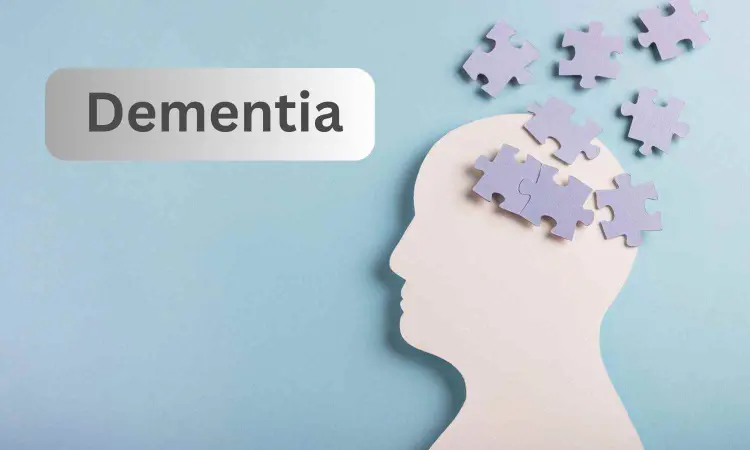- Home
- Medical news & Guidelines
- Anesthesiology
- Cardiology and CTVS
- Critical Care
- Dentistry
- Dermatology
- Diabetes and Endocrinology
- ENT
- Gastroenterology
- Medicine
- Nephrology
- Neurology
- Obstretics-Gynaecology
- Oncology
- Ophthalmology
- Orthopaedics
- Pediatrics-Neonatology
- Psychiatry
- Pulmonology
- Radiology
- Surgery
- Urology
- Laboratory Medicine
- Diet
- Nursing
- Paramedical
- Physiotherapy
- Health news
- Fact Check
- Bone Health Fact Check
- Brain Health Fact Check
- Cancer Related Fact Check
- Child Care Fact Check
- Dental and oral health fact check
- Diabetes and metabolic health fact check
- Diet and Nutrition Fact Check
- Eye and ENT Care Fact Check
- Fitness fact check
- Gut health fact check
- Heart health fact check
- Kidney health fact check
- Medical education fact check
- Men's health fact check
- Respiratory fact check
- Skin and hair care fact check
- Vaccine and Immunization fact check
- Women's health fact check
- AYUSH
- State News
- Andaman and Nicobar Islands
- Andhra Pradesh
- Arunachal Pradesh
- Assam
- Bihar
- Chandigarh
- Chattisgarh
- Dadra and Nagar Haveli
- Daman and Diu
- Delhi
- Goa
- Gujarat
- Haryana
- Himachal Pradesh
- Jammu & Kashmir
- Jharkhand
- Karnataka
- Kerala
- Ladakh
- Lakshadweep
- Madhya Pradesh
- Maharashtra
- Manipur
- Meghalaya
- Mizoram
- Nagaland
- Odisha
- Puducherry
- Punjab
- Rajasthan
- Sikkim
- Tamil Nadu
- Telangana
- Tripura
- Uttar Pradesh
- Uttrakhand
- West Bengal
- Medical Education
- Industry
Does your biological age affect your risk of dementia?

People whose biological age is higher than their chronological age may be more likely to develop dementia than people whose biological age matches or is lower than their chronological age, according to a study published on April 30, 2025, online in Neurology®, the medical journal of the American Academy of Neurology. Biological age is based on biomarkers of aging such as lung function, blood pressure and cholesterol.
The study does not prove that advanced biological age causes dementia; it only shows an association.
“With the rising impact of dementia around the world, identifying risk factors and implementing preventive measures is essential,” said study author Yacong Bo, PhD, of Zhengzhou University in China. “While none of us can change our chronological age, we can influence our biological age through lifestyle factors such as diet and exercise.”
The study involved 280,918 participants in a United Kingdom database who were an average chronological age of 57 at the start of the study and did not have dementia at that time. They were followed for an average of 14 years. During that time, 4,770 people developed dementia.
The researchers used two methods to measure biological age. In addition to lung function, blood pressure and cholesterol, the methods measured other biomarkers in the blood, such as average cell volume and white blood cell count. These methods show how different parts of the body, like metabolism, immunity, liver, kidneys, heart and other systems, work together as we age.
While the people who later developed dementia had an average chronological age of 65 at the start of the study compared to 57 for those who stayed free of dementia, their average biological age was 55 by one of the methods, compared to 45 for those with no dementia.
When dividing the participants into four groups based on biological age, researchers found that those with the most advanced biological age were about 30% more likely to develop dementia than those in the lowest group. These results adjusted for other factors that could affect the risk of dementia, such as age, education level and smoking status.
The researchers also found that people with advanced biological age also had changes in their brain that are associated with dementia, such as loss of gray matter volume.
“These brain structure changes explain some, but not all, of the association between advanced biological age and dementia,” Bo said. “These results support the hypothesis that advanced biological age may contribute to the development of dementia by causing a widespread change in brain structures.”
A limitation of the study was that participants in the database tend to be more health conscious than the general population, so they may be less likely to develop dementia.
Reference:
Yacong Bo, Liuqiao Sun, Associations of Accelerated Biological Aging With Dementia and the Mediation Role of Brain Structure Findings From a Longitudinal Study, Neurologyhttps://doi.org/10.1212/WNL.0000000000213616
Dr Kamal Kant Kohli-MBBS, DTCD- a chest specialist with more than 30 years of practice and a flair for writing clinical articles, Dr Kamal Kant Kohli joined Medical Dialogues as a Chief Editor of Medical News. Besides writing articles, as an editor, he proofreads and verifies all the medical content published on Medical Dialogues including those coming from journals, studies,medical conferences,guidelines etc. Email: drkohli@medicaldialogues.in. Contact no. 011-43720751


